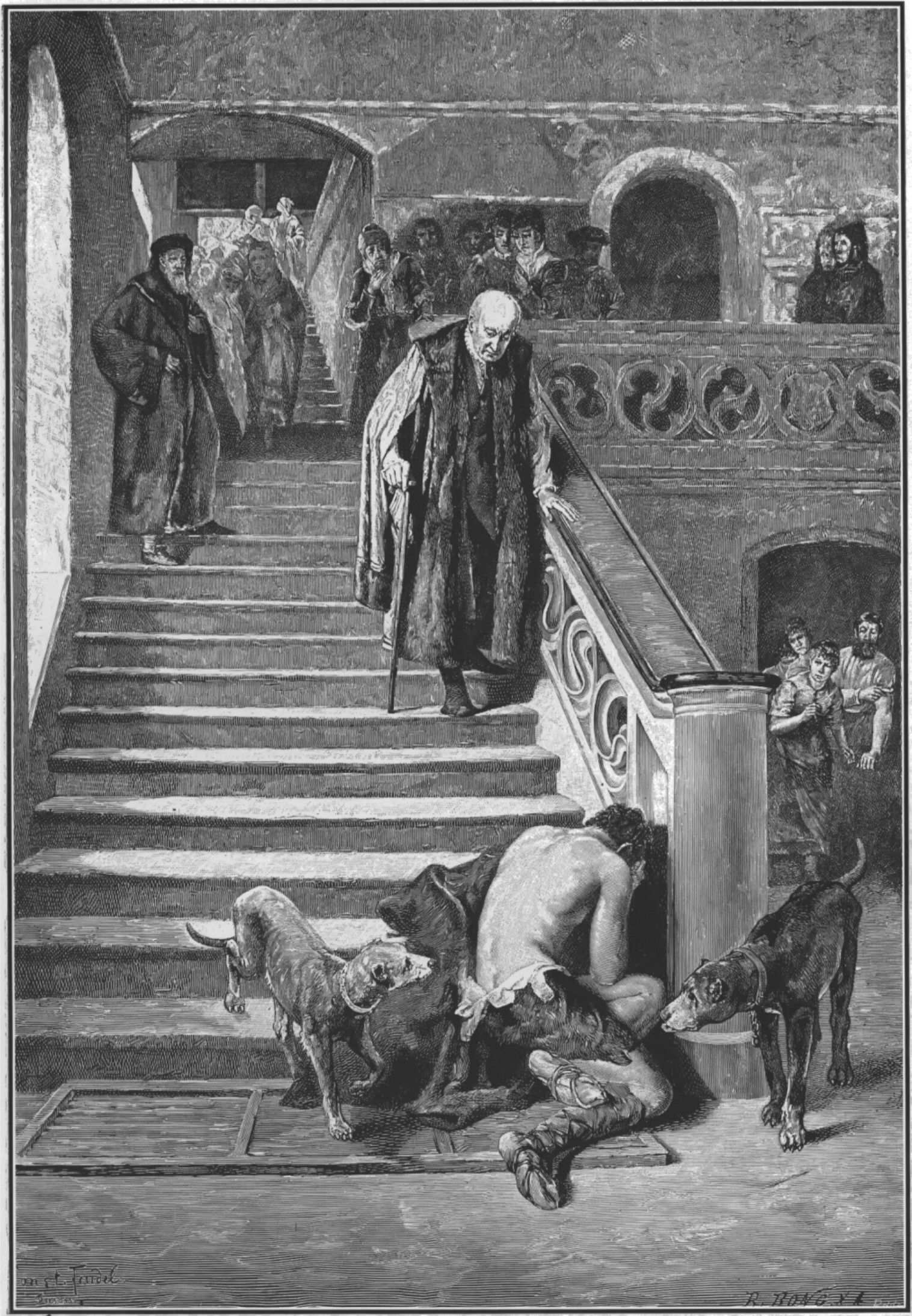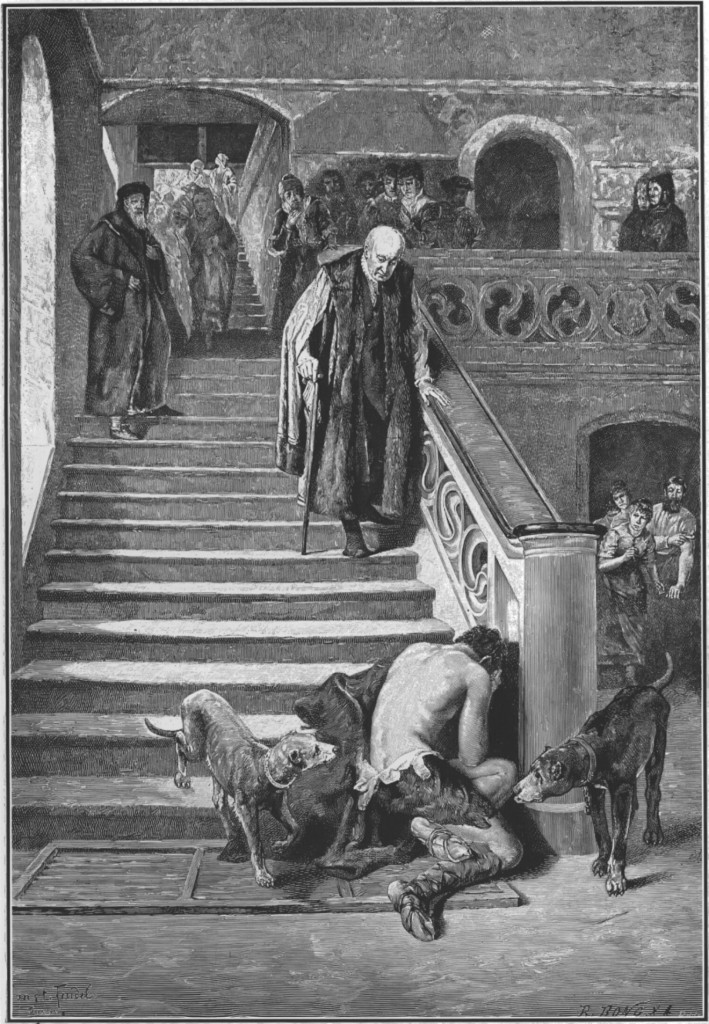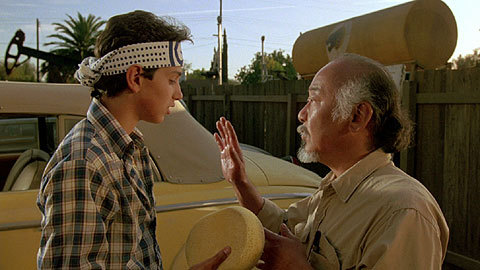I recently gave one of the most shaping books for my Christian walk – Tim Keller’s The Prodigal God – to my father for his birthday. This book is a short but powerful exposition of the Parable of the Two Brothers from Luke 15:11-32. As I was flipping through the pages and remembering how fond I was of this book, I was struck by one paragraph that I came across at the end of the first chapter. When comparing the difference between the disobedient younger brother and the moralistic, in-it-for-himself elder brother, author Tim Keller writes this:
“Jesus’ teaching consistently attracted the irreligious while offending the Bible-believing, religious people of his day. However, in the main, our churches today do not have this effect…That can only mean one thing. If the preaching of our ministers and the practice of our parishioners do not have the same effect on people that Jesus had, then we must not be declaring the same message that Jesus did. If our churches aren’t appealing to younger brothers, they must be more full of elder brothers than we’d like to think.” (Keller, 15-16)
The climate of the Western Church over the last two centuries has tried two great experiments. The first is the desire to make everything relevant in the church. Exegete and preach the Word, sure, but exegeting and preaching the culture instead is what attracts people, right? On paper, these dear brothers and sisters would still hold to an orthodox Christian faith, but their practice looks much different. A watered-down gospel is preached which lacks the conviction of sin and the grace of our Savior, all-the-while flooding congregants with bright lights and showering them with comfort.
The second experiment has been to reject traditional Christian teachings. If the “dogmatic” authority of the Bible is rejected, if the traditional ethical teachings of Jesus are ignored, if the historic creeds and confessions of the Church are disregarded, then we offer people to come to Christ and stay as they are. If we make Christianity easier for people – so they say – then more people will be attracted to Christ. Yet, these mainline churches are dying just as fast, if not faster, as the first group. There is no gospel-driven power to change in this proclamation. What is sold in these churches is no different than what the world is selling – except the world sells it for much cheaper.
And what is the result of such experimentation? I think author and scholar David Wells puts it best:
“Today, in the evangelical church, there are apparently many who have made decisions for Christ, who claim to be reborn, but who give little evidence of their claimed relationship to Christ. Something is seriously amiss if, as George Barna has reported, only 9 percent of those claiming rebirth have even a minimal knowledge of the Bible, if there are no discernible differences in how they live as compared with secularists, and if the born-again are dropping out of church attendance in droves. If these numbers are anywhere close to being accurate, then the gospel has become a stand-alone thing, and many who say they have embraced it have never entered the Christian life to which it was supposed to be the entry point.” (David F. Wells, God in the Whirlwind: How the Holy-Love of God Reorients Our World, 158)
This dilemma is one area where the teachings and emphasis of the saints of our past can greatly correct and aid us. Orthodox Christianity has always emphasized three important aspects to a saving faith, which come from the earthly ministry of Jesus Christ given to us through his Word:
- Knowledge: We need to know rightly who Christ is, that he alone has the power to save (John 14:6). We need to know and understand that he alone takes away the sin of the world (John 1:29), that he alone is the eternal begotten Son of the Father sent into the world to save sinners (Isaiah 49:6, John 1:1, Mark 2:17, Mark 10:45). If we say we believe in Jesus but do not understand rightly who he is, that is not faith; it’s idolatry.
- Conviction: It is necessary that we be convicted of our sin. We must understand that faith and repentance go hand in hand (Matthew 4:17). We as sinners must know rightly that we are indeed sinners and where that places us before a Holy God. We must be convicted that Christ knows what to do with our sin when we come to him (John 6:68).
- Trust: Every fiber of our being must places its trust in the grace of Christ and not in our own moralism (John 1:17, Luke 24:47). We must transfer the trust from ourselves and our efforts to earn anything to the once-and-for-all work of the blood-stained Savior.
Both the elder brother and the younger brother knew who their father was (Luke 15:12). Yet, it was the prodigal younger brother who was convicted (Luke 15:17-19) and then trusted (Luke 15:20-24) in his father, which led to the great feast at the prodigals homecoming. The elder brother was never convicted of his dependance on his father and therefore never trusted him, and it is for this reason he remained outside of the great banquet. Despite his good works and high sense of morals, the elder brother never came in to the feast. If we want to see more prodigals come home and more moralistic church attenders come to the banquet, then we must present and live out a holistic gospel.
Church, let us press in to be faithful to the God who has called us home to the banquet feast.
By what do theologians mean when they refer to the doctrine of union with Christ? Simply put, union with Christ refers to the language of “in Christ,”[1] which is common throughout the New Testament. Kevin DeYoung rightly notes that this sort of language is found 216 times in the New Testament.[2] In regards to the relationship between salvation and Union with Christ, John Murray says this, “Union with Christ is really the central truth of the whole doctrine of salvation…Indeed the whole process of salvation has its origin in one phase of union with Christ and salvation has in view the realization of other phases of Union with Christ.”[3] Murray here has in mind the language of the Apostle in his letter to the Ephesians[4], where Paul says that God the father has blessed us “in Christ, with every spiritual blessing in the heavenly places” (Eph 1:3). [5]
The Reformers too understood that our salvation – all spiritual blessings – are only found within our union with Christ. John Calvin says it this way, “…that so long as we are without Christ and separated from him, nothing which he suffered and did for the salvation of the human race is of the least benefit to us. To communicate to us the blessings which he received from the Father, he must become ours and dwell in us. Accordingly…we are said to be engrafted into him and clothed with him.”[6] Citing Romans 6:5, Calvin rightly understands the direct connection between the salvation of the human race and the blessings which Christ received from the Father. Indeed, we have been “united with him in a death like his” and “united with him in a resurrection like his” (Rom 6:5). Therefore, we must understand that the totality of spiritual blessings which we receive are our salvation, and can only be found in our union with Christ in his death and resurrection. Herman Bavinck rightly sums up this concept, “All the benefits of grace therefore lie prepared and ready for the church in the person of Christ…Atonement, forgiveness, justification, the mystical union, sanctification, glorification, and so on – they do not come into being after and as a result of faith but are objectively, actively present in Christ.”[7]
—–
[1] Richard Gaffin notes that the primary language for union with Christ is found in the “in Christ/the Lord” language, with other variations such as “with,” “for us” and “for our sins.” By Faith and Not By Sight, 41
[2] Kevin DeYoung, A Hole in our Holiness, 95
[3] John Murray, Redemption Accomplished and Applied, 161
[4] In another of his writings, Murray notes that it would be “exegetically impossible” to separate the scope of spiritual blessings from those blessing mentioned in the immediate succeeding context – adoption (vs. 5), redemption and forgiveness of sins (vs. 7), the knowledge of the mystery of God’s will (vs. 9) the inheritance (vs. 11), and the seal of the Holy Spirit (vss. 13, 14). Murray, Collected Writings Vol. 2, 126
[5] In his book By Faith and Not By Sight, Richard Gaffin cites Murray as particularly helpful in understanding Union with Christ. Gaffin summarizes Murray by saying “To sum up: present union with Christ – sharing with him in all he has accomplished and now is, by virtue of his death and resurrection – is, as much as anything, at the center of Paul’s soteriology. Page 45
[6] John Calvin, Institutes of the Christian Religion 3.1.1, 349
[7] Herman Bavinck, Sin and Salvation in Christ, 523. In agreement with Bavinck, Kevin DeYoung says this, “Union with Christ is not a single specific blessing we receive in our salvation. Rather, it is the best phrase to describe all the blessings of salvation, whether in eternity past (election), in history (redemption), in the present (effectual calling, justification, and sanctification), or in the future (glorification).” A Hole in Our Holiness, 94.
Out of the great 1980’s movie era came what is widely regarded as one of the most iconic films in movie history, The Karate Kid. In this film, the protagonist Daniel-San is perpetually bullied and beat up by the Karate students of the Cobra Kai dojo until the wise sage and Karate master Mr. Miyagi steps in and saves him. Eventually, Mr. Miyagi reluctantly agrees to teach Daniel-San Karate in order to beat the Cobra Kai bullies in a local Karate tournament.
Unbeknownst to Daniel-San, Mr. Miyagi begins teaching him Karate through regular household chores; waxing Miyagi’s car, painting his house and fence, and sanding his wooden deck. Of course without the end result in mind, to Daniel-San this is nothing more than being an errand boy in a feeble attempt to earn Mr. Miyagi’s time so he’ll teach him real Karate. This only lasts for four days, until finally Daniel-San has had enough with the chores and furiously decides its time to go home.
“Daniel-San!” exclaims Mr. Miyagi. “Come here!”
As a martial artist myself, I love what follows in this scene between these two characters. Mr. Miyagi begins to unfold what his plan has been all along. “Sand the floor” is not simply a technique Daniel-San learns to make a deck look nice, but to block kicks coming at his midsection. “Paint the fence” is not only the proper technique for exterior remodeling, but for blocking high and low punches as well. “Wax on, wax off” is another way of saying, “Use correct technique or you’re going to get punched in the face.”
Daniel-San finally gets it; he’d been learning Karate all along.
Sometimes I feel like my attempts at learning theology are much like Daniel-San’s approach to learning karate. I don’t want to know application and wisdom, I just want to know facts and answers. My pride gets in the way and turns theology into an intellectual pursuit rather than worship. It is all too easy for me to turn my studies of the Scriptures into an attempt to tear down other peoples philosophies and worldviews, completely neglecting the fact that I’m supposed to be drawing closer to the holy and loving God of the entire universe. In haste, I determine that people who aren’t teaching me enough facts aren’t teaching me enough “theology.” After all, in order to be the best around you have to know more than everyone else, right?
Take for example when I started my Islam class a couple years ago. I went into the class wanting a five-point systematic discourse on how to tear apart Muslim apologists. Instead, I learned that if I don’t actually love people, I have no business engaging in evangelistic dialogue – regardless of how much I know.
Wax on, wax off. Paint the fence, Ben-San.
When I first became a Christian and the majesties of God were opened to me, I bought every apologetic resource I could find hoping to prove to my friends why I was right and they were wrong. I had no conception that a right understanding of God should only lead me to a correct worship of God.
Wax on, wax off. Paint the fence, Ben-San.
I think about how often I go into a sermon on Sunday simply looking for new nuggets of information and knowledge, rather than a desire to draw near to the throne of grace through the preaching of God’s Word. Instead of setting myself at the foot of the cross, seeking to have the Word of God pierce my heart, I elevate myself to a place where I feel worthy of picking apart good or bad facts.
Wax on, wax off. Paint the fence, Ben-San.
After every one of these examples, I had a moment where I realized that my original desires weren’t for real theology, but something entirely different. Every time my knowledge and pride puffs me up, like a crane kick to the face I get knocked down and realize I don’t know real theology at all.
The truth is, more often then not I act like one of the antagonist students from Cobra Kai than I do a protege of Mr. Miyagi. My goal is to show no mercy, sweeping the leg of my opponents and humiliating them at whatever cost. Oh Lord, shape my study of you to lead towards praise of you! It has been said that a right theology leads to proper doxology. May my life be evidenced not by how much I know, but by the magnitude of the God I worship. He must increase, but I must decrease.
Being the best around isn’t about how much you know, but instead is defined by being united to a compassionate and loving God through the sacrifice of Christ, as evidenced by your kindness and goodness towards other people. Being the best around means realizing that Christ is Lord over all, and that I am the least of these worthy to be called one of his own.
If you’re anything like me, then you love ordering things on Amazon Prime. Books, gifts (I do all of my birthday and Christmas shopping on Amazon) and basically everything else except for my groceries are purchased with Amazon. It’s such a time and money saver!
I’ve recently been thinking a lot about the term salvation (or, deliverance), and I started to realize that in many ways the “components” of salvation can be broken down the same way as an Amazon Prime order. When we order things online we naturally just think of that purchase as a one step process. I click, it shows up two days later. Similarly, today we often minimize salvation to a one-step deal, and end up equating salvation to simply being the same thing as being forgiven (justified) without realizing that in our salvation we get ALL of Christ, not just one small piece of him.
But if you think about it, an Amazon Prime order isn’t as simple as just clicking on an item and then having it show up at your door a few days later. There are a few steps along the way, which I will outline below:
1) The Transaction: At some point, you add an item to your cart and click ‘buy’. When this happens, a transaction takes place. You paid for the item in order to get it from Amazon. The item could never be yours without a transaction where you pay for it in full.
2) A Change in Ownership: Immediately following the transaction, the item becomes mine and it is guaranteed to me. Because of Amazon’s guarantee to the customer, there is no scenario where I will end up without the item. It is now mine.
3) The Delivery Process: Unfortunately, Amazon has yet to invent space-time warp particle displacers, so the item cannot be instantly transferred to me. It must first be placed on a truck and sent out by Amazon and come via a delivery service. Even if the delivery process hits a snag or a delay, the process will still ultimately end up with me getting the product I ordered, because of the price I paid, the change in ownership and the guarantee to me.
4) The Arrival: Two days after your order, the product you paid for in the transaction that became yours ends up in your hands!
See, an Amazon Prime delivery isn’t as simple as one step – even though sometimes it may seem that way. In a similar way, we should see our deliverance – our salvation – as something much bigger than just one step.
Indeed a transaction took place to purchase us; we are a blood-bought people. But we are not only blood-bought people, because when the divine transaction of Christ dying in our place occurred to forgive us of our sin, we became children of our Heavenly Father. Our ownership was transferred out of this world and we became adopted as sons and daughters, acquiring the inheritance of Christ.
But, having been ransomed to the Father, we are not instantly taken to him. No, there is now a “delivery process” where we are being made more like his Son. I recently ordered some comics from Amazon (don’t judge me!), but rather than delivering them to me the UPS driver just took them to the local UPS center for pickup instead. The delivery hit a snag – yes it was a delay, but it didn’t erase the reality that those comics still belong to me, and are guaranteed to me. This is our sanctification; we are being prepared for the day when we will be presented to the Groom as the beautiful, spotless Bride. There may be hiccups on the way, snags that seem to slow or even reverse the process, but we are promised to Him. Nothing can now separate us from our guaranteed delivery.
Finally, in our glorification we will arrive in the Fathers presence. Never to leave his presence, we look forward to the final state of being delivered into his hands.
This comparison, of course, is not at all to belittle the magnitude and beauty of our salvation. However, I think this is a helpful picture for realizing that there is more than one piece to our salvation – and that is a good thing. So, to summarize in the paraphrased words of Herman Bavinck; in salvation, Christ first restores our relationship to God, then we are adopted into God, then he renews us after God’s image, and finally preserves for us our heavenly inheritance.
Guaranteed.





